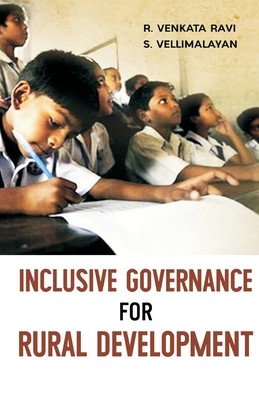
- We will send in 10–14 business days.
- Author: S Vellimalayan
- Publisher: Mjp Publishers
- Year: 2019
- Pages: 162
- ISBN-10: 8180943720
- ISBN-13: 9788180943720
- Format: 14 x 21.6 x 0.9 cm, minkšti viršeliai
- Language: English
- SAVE -10% with code: EXTRA
Reviews
Description
CONTENTS: Chapter 1 - Introduction, Chapter 2 - Socio Economic Profile, Chapter 3 - Political and Organizational Profile, Chapter 4 - Needs and Priorities, Chapter 5 - Case Studies, Chapter 6 - Findings and Conclusions. PREFACE: Decentralized development in rural area requires networking or partnership among the grassroots organizations. The village level panchayats are local self-government institutions responsible for the planning and implementation of various activities for socio-economic development in rural areas. The NGOs are working for the development of rural areas by executing various development programmes of the government and non-government agencies. The CBOs, as Users Groups have been working to protect their interest through participatory management of the resources. In context of convergence approach, these organizations are expected to work together for the cause of development. In the case of these organizations, nature and origin differ from each other, but they have a common goal of development and of their own interest. The PRIs are local self-government with Constitutional authority; the NGOs are registered societies working as development catalyst; and CBOs are association of users of various resources and services.
EXTRA 10 % discount with code: EXTRA
The promotion ends in 21d.10:51:41
The discount code is valid when purchasing from 10 €. Discounts do not stack.
- Author: S Vellimalayan
- Publisher: Mjp Publishers
- Year: 2019
- Pages: 162
- ISBN-10: 8180943720
- ISBN-13: 9788180943720
- Format: 14 x 21.6 x 0.9 cm, minkšti viršeliai
- Language: English English
CONTENTS: Chapter 1 - Introduction, Chapter 2 - Socio Economic Profile, Chapter 3 - Political and Organizational Profile, Chapter 4 - Needs and Priorities, Chapter 5 - Case Studies, Chapter 6 - Findings and Conclusions. PREFACE: Decentralized development in rural area requires networking or partnership among the grassroots organizations. The village level panchayats are local self-government institutions responsible for the planning and implementation of various activities for socio-economic development in rural areas. The NGOs are working for the development of rural areas by executing various development programmes of the government and non-government agencies. The CBOs, as Users Groups have been working to protect their interest through participatory management of the resources. In context of convergence approach, these organizations are expected to work together for the cause of development. In the case of these organizations, nature and origin differ from each other, but they have a common goal of development and of their own interest. The PRIs are local self-government with Constitutional authority; the NGOs are registered societies working as development catalyst; and CBOs are association of users of various resources and services.


Reviews